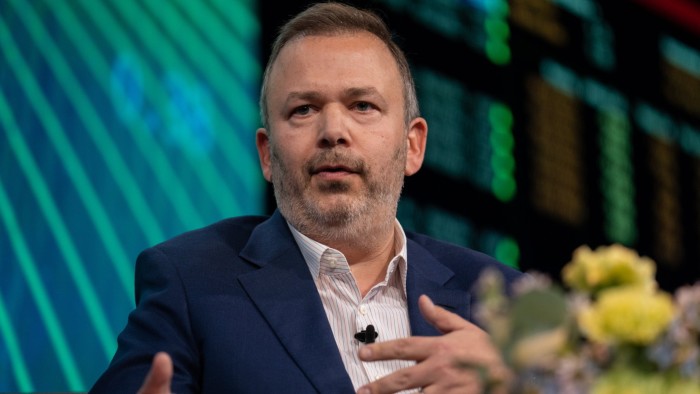Unlock the Editor’s Digest for free
Roula Khalaf, Editor of the FT, selects her favourite stories in this weekly newsletter.
Fund managers are warning the Financial Conduct Authority that plans by US activist Boaz Weinstein to take over seven UK investment trusts leave shareholders in the dark about how their money will be invested.
Saba Capital, which is run by Weinstein, has taken stakes in the seven trusts and called on investors to vote for changes to their boards, claiming they have failed to hold the managers of the trusts to account for performance. Investment trusts hold £266bn in assets in the UK and are very popular with retail investors.
But some of the managers, which include Baillie Gifford, Janus Henderson, Herald Investment Management and Manulife, have criticised Saba’s actions. The New York firm has proposed its own directors for the boards and is ultimately planning to put itself forward as manager of all seven trusts. Saba will also implement a new strategy for them.
One of the UK fund managers has written to the FCA to raise concerns about Saba’s approach, according to two people with knowledge of the matter.
The fund manager cited the lack of detail about Saba’s plans to change investment strategies, one of the people said.
The risk is that investors end up with a very different portfolio from the one that they initially chose, the person added. They noted that this could be at odds with UK consumer protection rules.
Saba Capital said: “Rather than focus on value-enhancing actions, certain trusts have predictably resorted to lobbying local regulators.
“If Saba’s nominees are elected, the board of each investment trust will be legally compliant at all times under the FCA Listing Rules and will ensure compliance with the highest standards of governance.”
The seven trusts that Saba is targeting are Baillie Gifford US Growth, Edinburgh Worldwide Investment, Keystone Positive Change, European Smaller Companies, Henderson Opportunities, Herald Investment, and CQS Natural Resources Growth & Income.
The managers of the seven trusts are also worried that retail investors will not vote on Saba’s proposal, noting that they tend to be less engaged than institutional shareholders. Saba, which has a stake in each of the trusts ranging from 19 per cent to 29 per cent and amounting to £1.5bn in total, needs 50 per cent of votes in favour at each trust to win.
“We’re intending to contact the FCA,” said James Budden, a director at Baillie Gifford. “We have concerns about corporate governance and shareholder interests.
“The big question is not the credibility of Saba’s proposals but the inertia of shareholders.”
Saba said it was “focused on providing shareholders reliable returns, boards that advocate for shareholders’ best interests and managers that are focused on delivering value”.
Chris Casey, chair of the CQS Natural Resources Growth & Income trust, said he was planning to contact the FCA over Saba’s approach and the risk that retail investors would not vote.
Richard Stone, chief executive of the Association of Investment Companies, said: “Saba is proposing major changes to these seven investment trusts so it’s essential that platforms notify their customers about these meetings swiftly and encourage them to vote.”
The FCA declined to comment.



